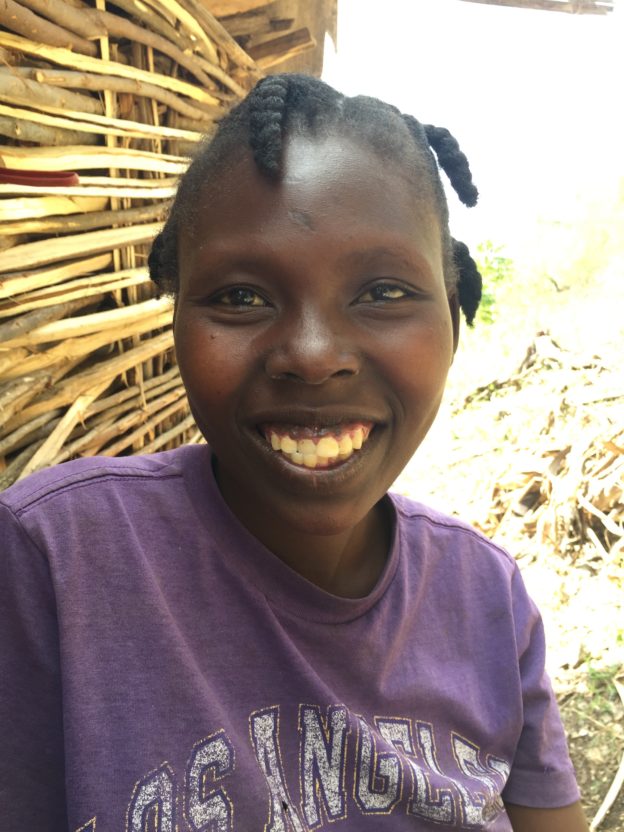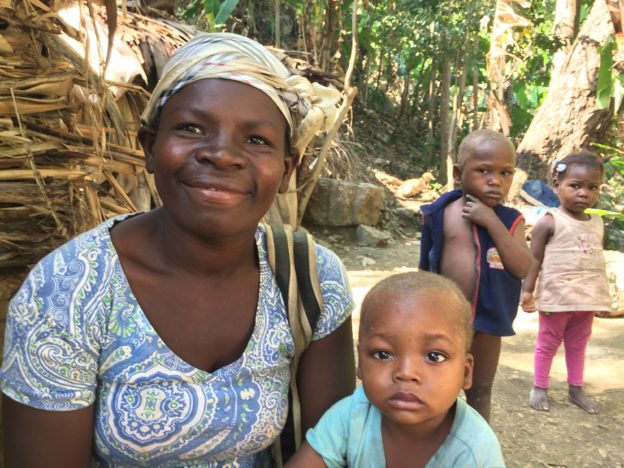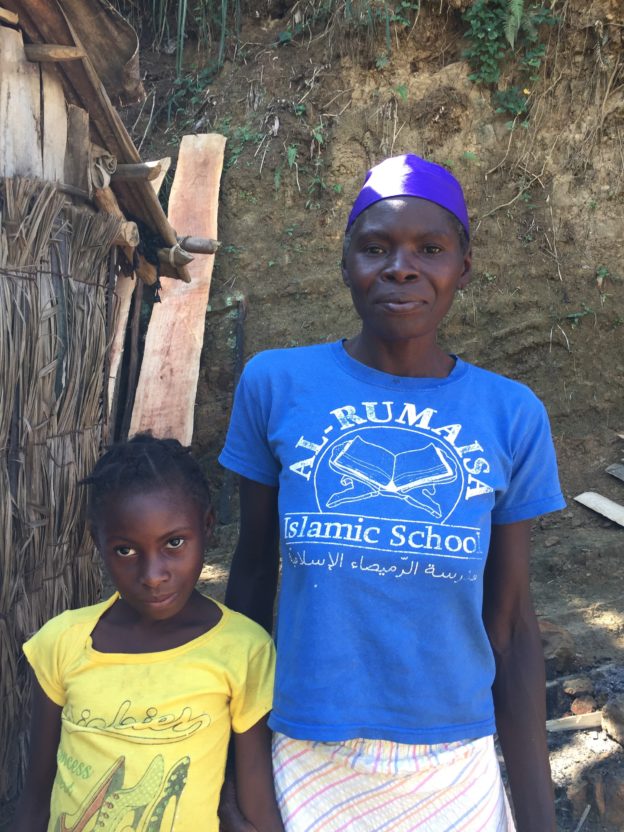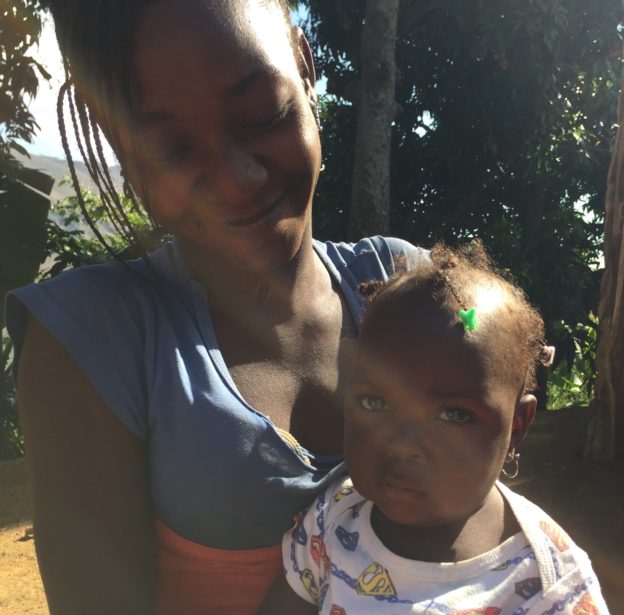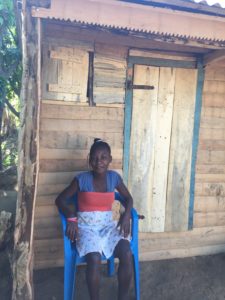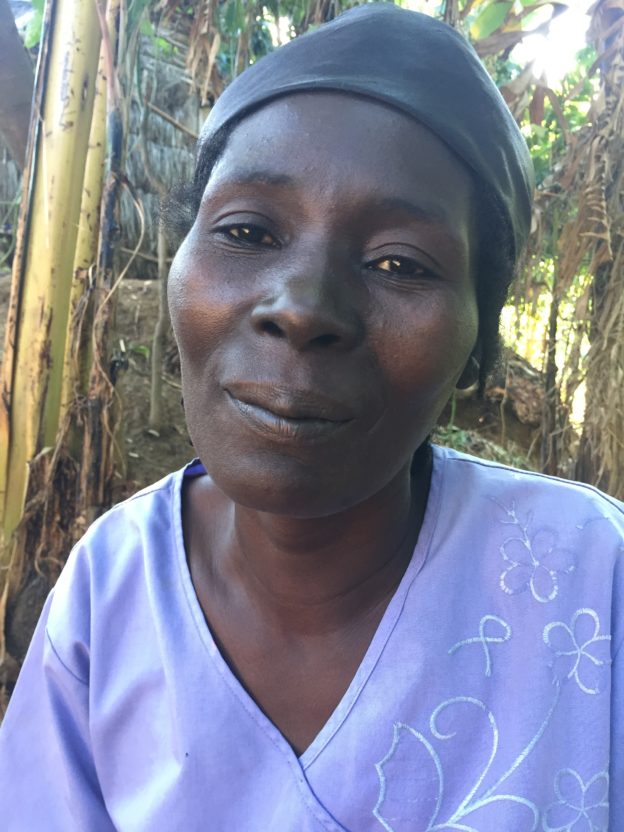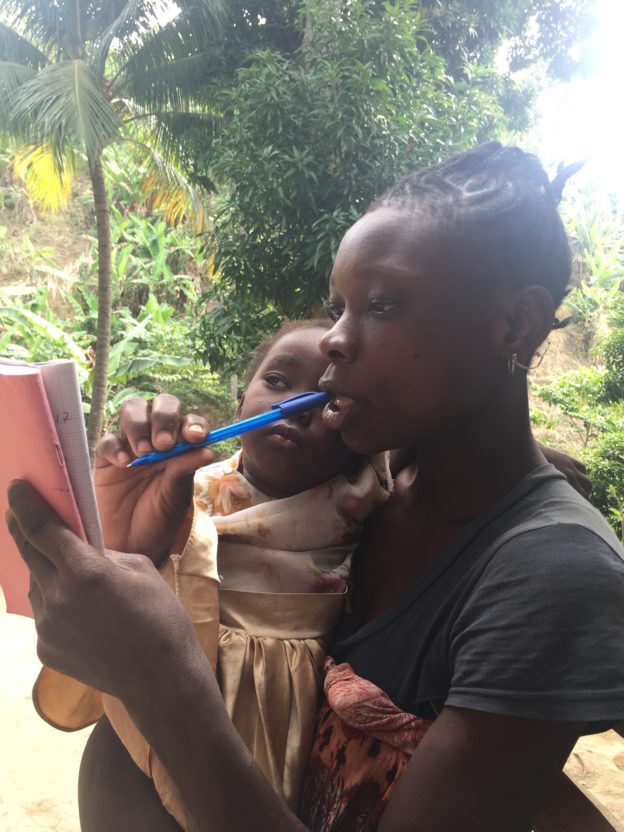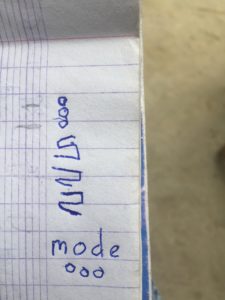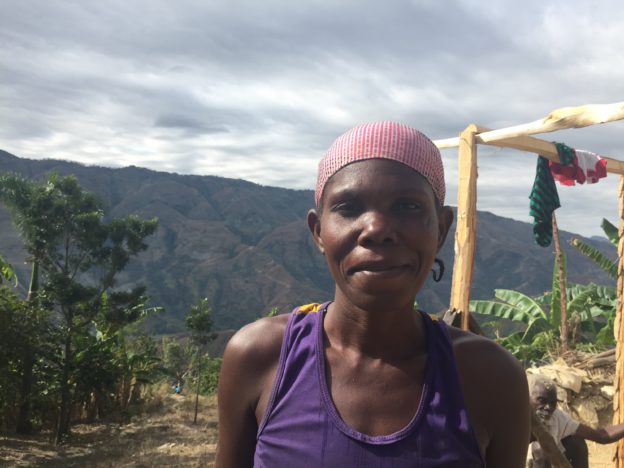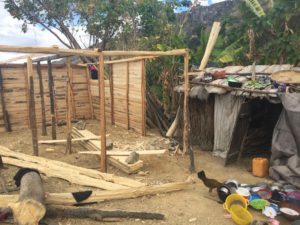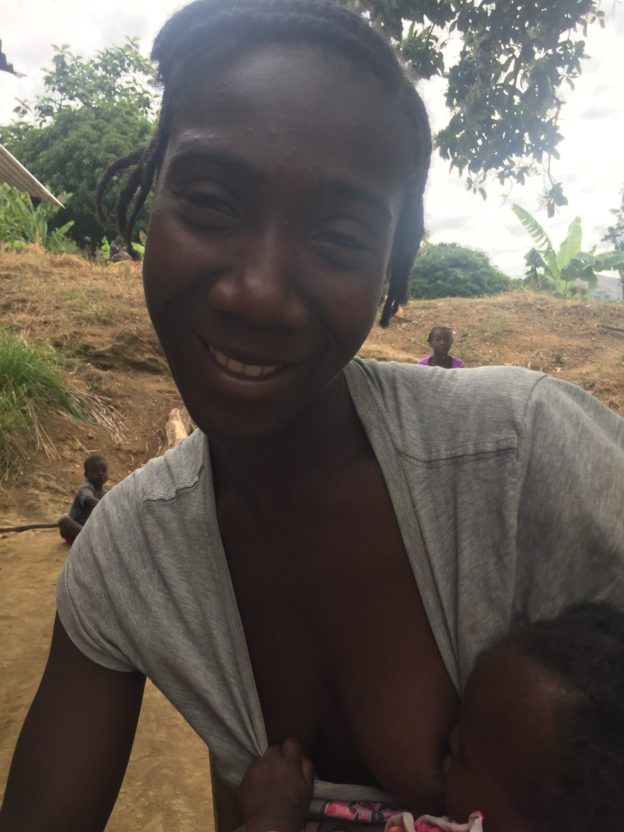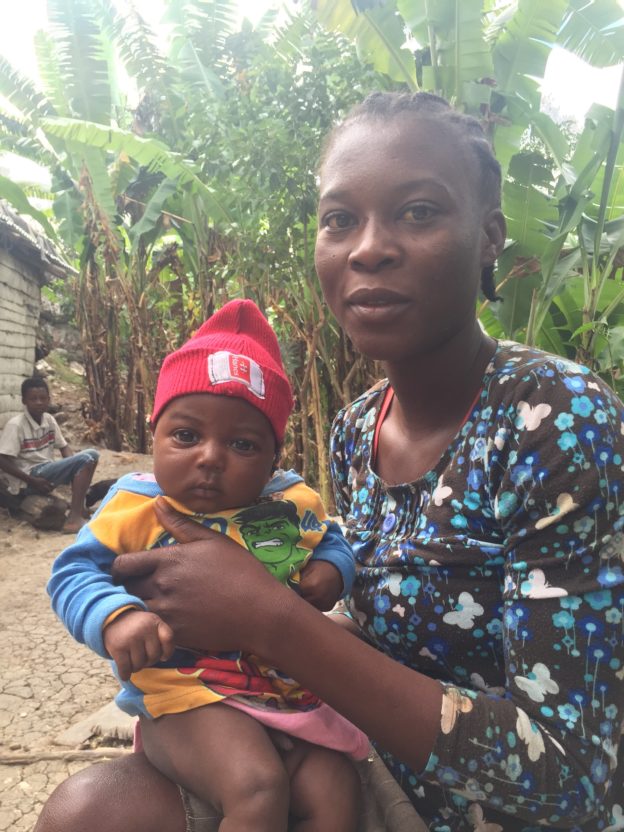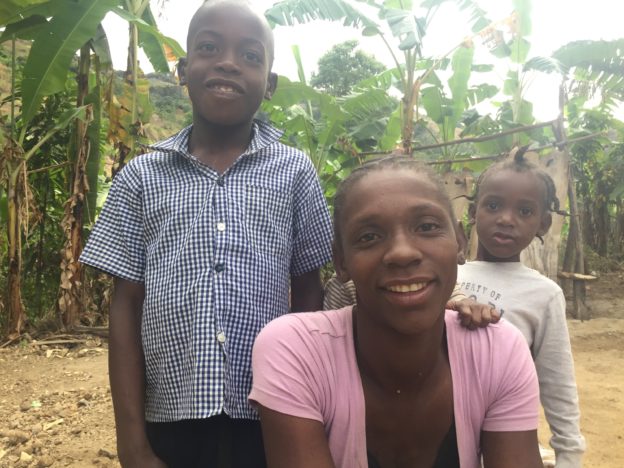Rosemitha feels as though she has made progress. “I was really in a bind. I never had the money even to buy a little oil to cook my rice with. Now I buy what I need to go with our rice.” They had a solid rice harvest on land that she and her husband work as sharecroppers. It won’t provide any income, because she thinks she’s better off storing it for food than selling it. “I’d only have to use the money to buy us food.” But it should keep the family fed for awhile.
Her goats are doing well. Two of the three we gave her had young already, and although one of the three kids died, the other two seem healthy. The third mature goat is pregnant and should have its litter soon.
Not everything has been smooth, though. She started her small commerce with 1500 gourds — or about $23 — worth of plantains. Her business plan was to buy plantains in the hills around her home and then transport them for sale to Mibalè. And the plan started to work. But then on two occasions she had trouble arranging transportation for her merchandise. The plantain ripened before she could get them to market, so she could only sell them as individual bananas locally. Her 1500 gourds had increased to 2000 when she was selling plantains by the bunch, but the loss she took reduced her capital to about 750.
Instead of using that money to keep buying plantains, she and her husband made a decision. They decided to invest it in black beans to plant on land that belongs to her mother-in-law. She still wants to have a small commerce, however, so when they harvest the beans, she plans to use income from the sale to buy kerosene and oil. She might not make as much as she would with plantains, but it will be less risky because neither product can spoil.
She and her husband finished repairing their house, but they’ve had problems there, too. One of the palm trees that they bought for the walls was too fresh. The planks that were made from it shrank as they dried after they were nailed in place, leaving wide gaps between them. There’s really no solution except to buy another palm tree and let it season before they cut it into planks. And until they harvest their own beans, they won’t have much income beyond the 50 gourds her husband makes every day that he works in their neighbors’ fields.
